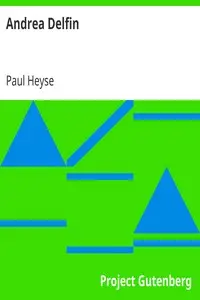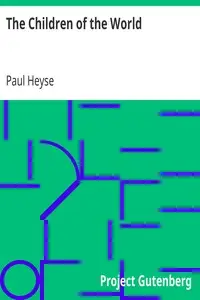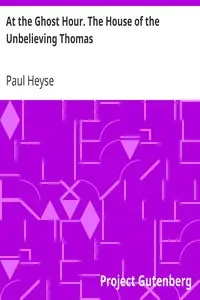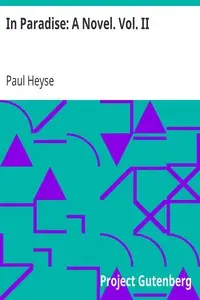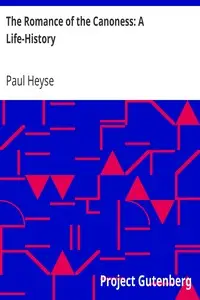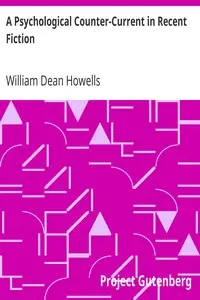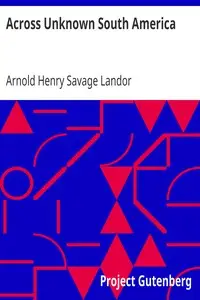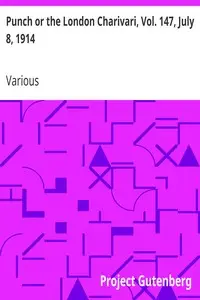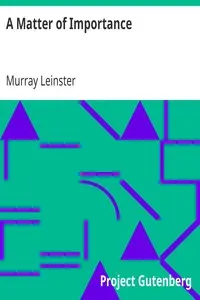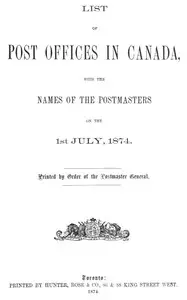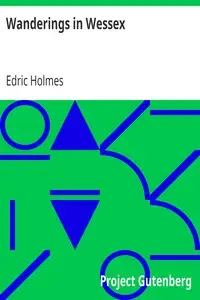"The Dead Lake and Other Tales" by Paul Heyse is a collection of short stories written in the late 19th century. The work navigates themes of human emotion, loss, and the haunting remnants of love and regret, particularly focusing on the character of Eberhard, a melancholic doctor grappling with the repercussions of his own past decisions and a chance connection with a mother and her ill child. At the start of "The Dead Lake," we meet a solitary inn nestled by a lake at the foot of the Alps, where a stranger, Eberhard, arrives seeking solace. Over the course of a stormy night at the inn, Eberhard reflects on his tragic past involving the deaths of loved ones, which has left him in despair and contemplating taking his own life. However, his path begins to change when he encounters a young mother and her struggling daughter, Fanny, who has fallen gravely ill. Despite his initial intentions, Eberhard takes on the role of caretaker, compelled by both a sense of duty and unresolved emotions. The opening portion sets a somber tone, establishing Eberhard’s inner turmoil while foreshadowing a potential transformation rooted in human connection and the struggle for redemption. (This is an automatically generated summary.)
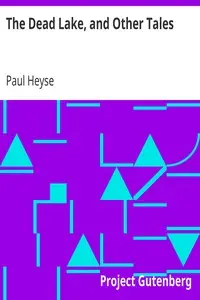
The Dead Lake, and Other Tales
By Paul Heyse
"The Dead Lake and Other Tales" by Paul Heyse is a collection of short stories written in the late 19th century. The work navigates themes of human em...
Paul Johann Ludwig von Heyse was a German writer and translator. A member of two important literary societies, the Tunnel über der Spree in Berlin and Die Krokodile in Munich, he wrote novels, poetry, 177 short stories, and about sixty dramas. The sum of Heyse's many and varied productions made him a dominant figure among German men of letters. He was awarded the 1910 Nobel Prize in Literature "as a tribute to the consummate artistry, permeated with idealism, which he has demonstrated during his long productive career as a lyric poet, dramatist, novelist and writer of world-renowned short stories." Wirsen, one of the Nobel judges, said that "Germany has not had a greater literary genius since Goethe." Heyse is the fifth oldest laureate in literature, after Alice Munro, Jaroslav Seifert, Theodor Mommsen and Doris Lessing.

